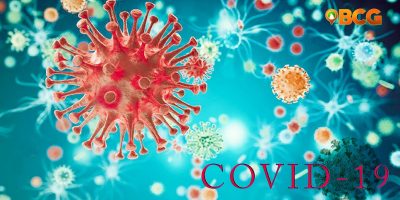Harvard Study Explains How COVID-19 Causes Loss of Smell
The main neurological symptom and one of the most common indicators of the Coronavirus Disease 2019 (COVID-19) is anosmia or the temporary loss of smell.
Studies suggest that compared to other well-known symptoms such as fever and cough, the temporary loss of smell better predicts the disease. However, the mechanisms behind the loss of smell in patients with COVID-19 were not yet clear.
That’s until the Harvard Medical School (HMS) research team’s study suggests that infection of nonneuronal cell types may be responsible for anosmia in COVID-19 patients.
“Our findings indicate that the novel coronavirus changes the sense of smell in patients not by directly infecting neurons but by affecting the function of supporting cells.
– Sandeep Robert Datta, senior study author, associate professor of neurobiology in the Blavatnik Institute at HMS
HMS: How COVID-19 Causes Loss of Smell
HMS stated that the majority of COVID-19 patients experience temporary anosmia. So, to better understand how a sense of smell is altered in COVID-19 patients, Sandeep Robert Datta, the senior study author, and his colleagues started by pinpointing cell types most vulnerable to SARS-CoV-2 infection.
They focused on the gene ACE2 which encodes the main receptor protein that SARS-CoV-2 targets to gain entry into human cells; and gene TMPRSS2 which encodes an enzyme thought to be important for SARS-CoV-2 entry into the cell.
According to the author, as data suggest, COVID-19-related anosmia may arise from a temporary loss of function of supporting cells in the olfactory epithelium, which indirectly causes changes to olfactory sensory neurons.
The said study is called the Non-neuronal expression of SARS-CoV-2 entry genes in the olfactory system suggests mechanisms underlying COVID-19-associated anosmia, which has just been published recently, on July 24, 2020 at Science Advances.
According to the Harvard Medical School, the result of the study could lead to treatments for anosmia and even the development of improved smell-based diagnostics.
For More News and Updates
Want to see more news like this one? See the rest of our content by exploring our Baguio City Guide website and by liking and following our official Baguio City Guide Facebook page.
SOURCE
Science Advances|American Association for the Advancement of Science (AAAS)












